That Time I Explained Unschooling on The Steve Harvey Show
With a bit of humor, but unmistakable certainty, Steve Harvey told unschooling mama, Bethanie Garcia, that no matter what, her 5-year-old daughter was gonna need to learn how to read, soon! He said it from a place of concern, because in this society, we put firm timelines on learning.
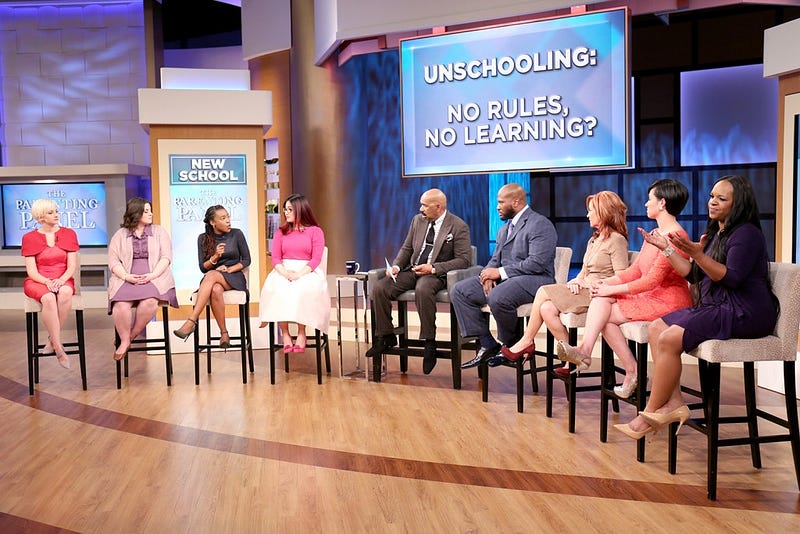
Mr. Harvey’s concern also presents an opportunity to show how media has misinformed us about how learning happens outside of classrooms, regurgitated curricula, and Common Core everything.
In 2012, more than two-thirds of the world’s 860 million illiterate people were women. Today, to educate them from girlhood is to create the potential for positive, long-term changes in households, among families, in job settings, and in overall society.
But is the school system always the best approach to educating a child, girl or boy? Not always, and increasingly, not often. I agreed to appear on national television to represent an often marginalized and rapidly growing voice of adults who want to live and raise children outside of the schedules and structures of the public or private school systems.
It feels only natural to want the best for our children. All children. We want them to be safe, feel loved, and to grow with a sense of accountability to the greatest version of themselves. That’s why education is so important to most parents. We want to do what we can to fill our children’s waking hours with mental stimulation and other instances of love, so that they grow up to be happy, responsible, flourishing adults.
And we think good discipline and proper education through school are probably the best, and certainly the most proven, methods for guiding our children toward their greatness. Right?
The Steve Harvey Show audience sure seemed to feel that way. The polled the crowd about considering alternative education methods like unschooling, and most of them said No Way!
I imagine they say so because school is associated with education and self-betterment. But for many children and adults, school was not a place to learn, engage, or flourish. Instead, it was a place where it became necessary to hunker down, protect one’s self, try to disappear, or pretend to feel safe, or relevant.
But does education happen in school for some children? Yes, and certainly all children should have the chance to be educated. More than 13 million children throughout the Middle East and North Africa, two of many examples, will not be so fortunate. Their schools are closed because of political unrest and continual public violence. And for other children, home environments are not safe, and school is where they can get love, support, and learning tools.
Also and equally relevant though, is the little boy in Atlanta, Georgia who is labeled, intellectually low-balled, and consistently targeted. But he is not a slow learner, or an unmotivated student, or a threat to anyone in the school.
And even when those issues are minimal, for many children, the people in the classrooms don’t care about the same things as they do. And textbooks intentionally hide important historical truths; Black and Brown histories in particular.
For him, it’s not about getting the chance to go to school, but having the choice to love learning, and to understand how he learns, so he can confidently embody healthy personal leadership.
For him, traditional school may not be where he gets to explore those options. And the more he learns about the system, the more suspicious of and disconnected from it he becomes. The way they keep telling him what to memorize, what to study, and what to discount altogether leaves him tragically in need of space to explore and express the world through the lens of his unique gifts and skills.
Without that practice, it is unnecessarily complex for him to grow into a person who understands themselves. One who doesn’t just gather information, but knows how to discern, decide, and manage life’s experiences from a mindful, confident mental space.
That mindful, confident space, I call it confident autonomy, is what my husband and I want for our daughters. We are unschoolers, parents who believe that children should play a central role in the design of their days, including what they learn. It is part of our liberation strategy.
Our learning catalysts often come from completely unplanned moments like meeting a group of artists headed to the top of Boulder, Colorado’s breathtaking Settlement Park rock formations. As an unschooling, location-independent family, we do not have a home in a particular city. Instead, we spend months, sometimes weeks at a time in various cities. While there, we engage in the environment through shopping for food, taking classes, attending events, and researching cool places to live and learn.
Here’s our 11-year-old leading a group of women who gladly volunteered to dance with her after watching her perform a small piece of the dance from a Vocaloid song en route to the top of the mountain. Turns out the women are part of a collective of artists who facilitate “creative interaction between the human body, its motion and imaginations, and its environment.”
Our daughter was thrilled, and she didn’t need a curriculum to embrace that experiences. Or to learn more about the park we visited, or the history of the area we were living in. People, conversations, interests sparked, books and blogs to help with research. There is so much access to information and engagement today that we feel it benefits our children to be able to immerse themselves in topics of their interest, so they can lean in and explore themselves through those spaces.
For our daughters, 10 and 11 at the time of this writing, the unschooling philosophy is helping them develop as confident, creative, curious people who know how to get information, process information, and move toward goals they set for themselves. Imperfect and profoundly life-changing, motherhood has certainly raised me. And helped me and my husband raise happy, curious people. Every child has that same capacity, and some of them can be supported through alternative learning environments like homeschooling, or like my family, unschooling.
I sat on a parenting panel along with seven other parents discussing approaches to parenting. Through hearty dialogue and audience participation, we explored public shaming, spanking, unschooling, and a few other touchy parenting topics. In the meantime, check out the sidebar links here on this page for more on unschooling. For more on unschooling, go to the original blog post on my blog, and check out the links on the sidebar.

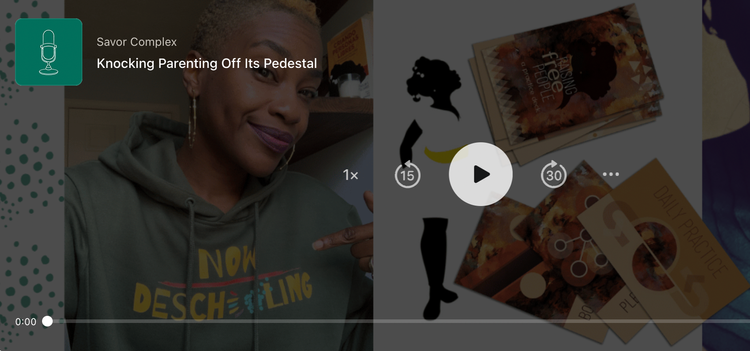
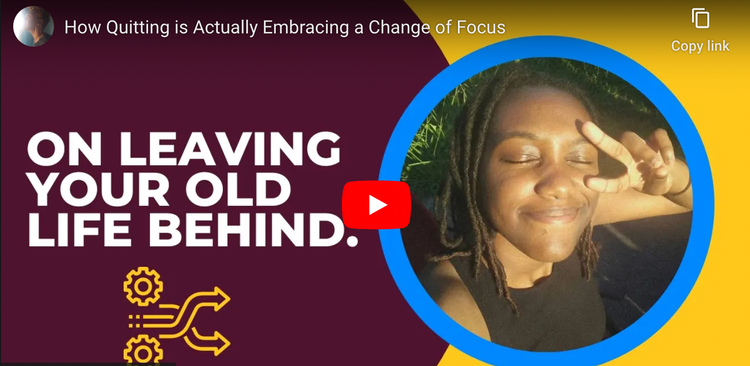
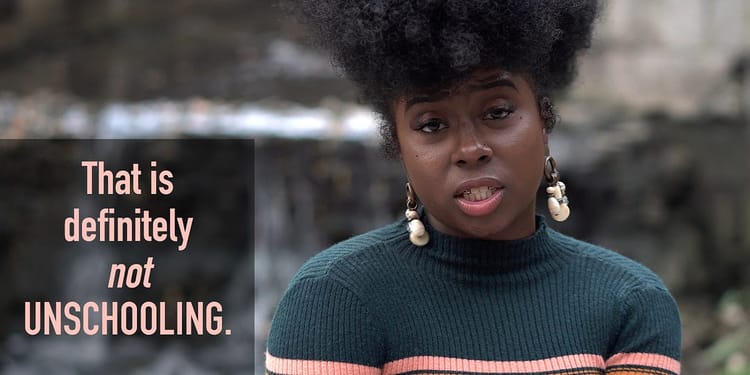
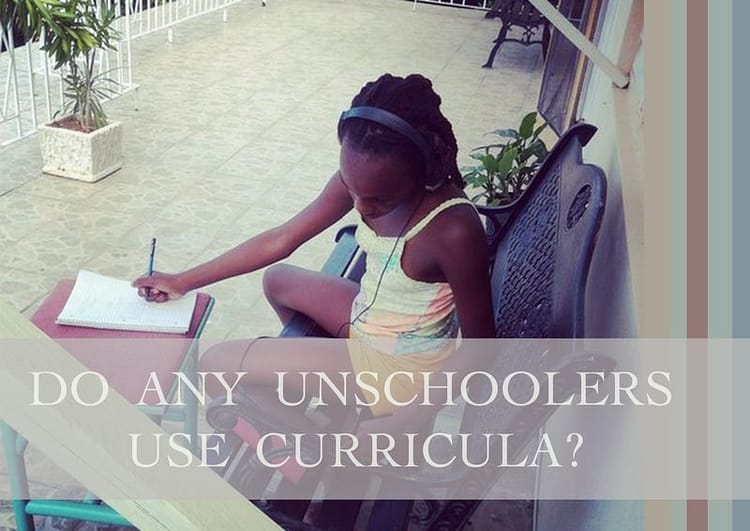

Member discussion